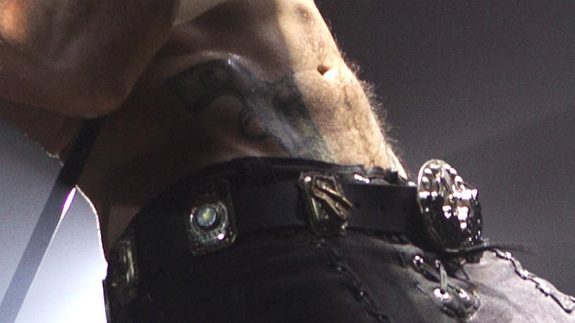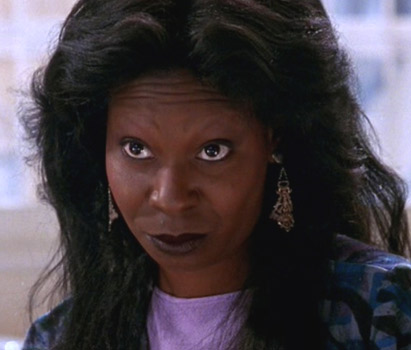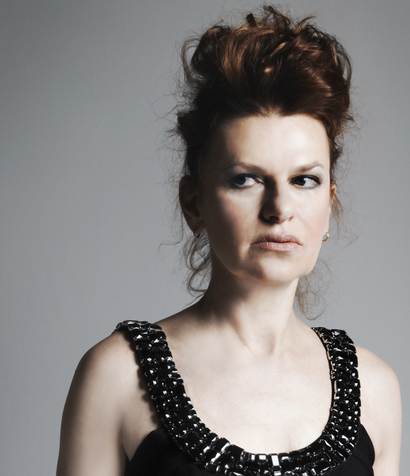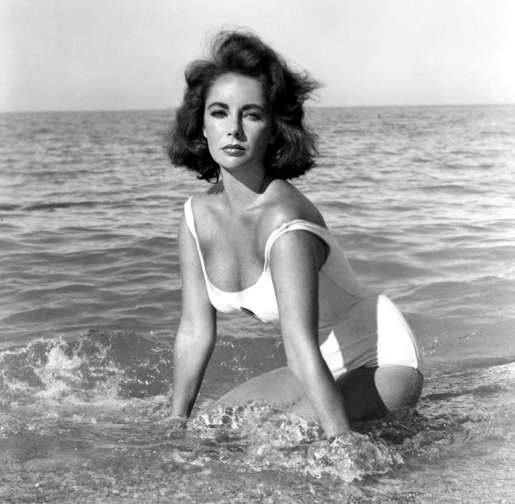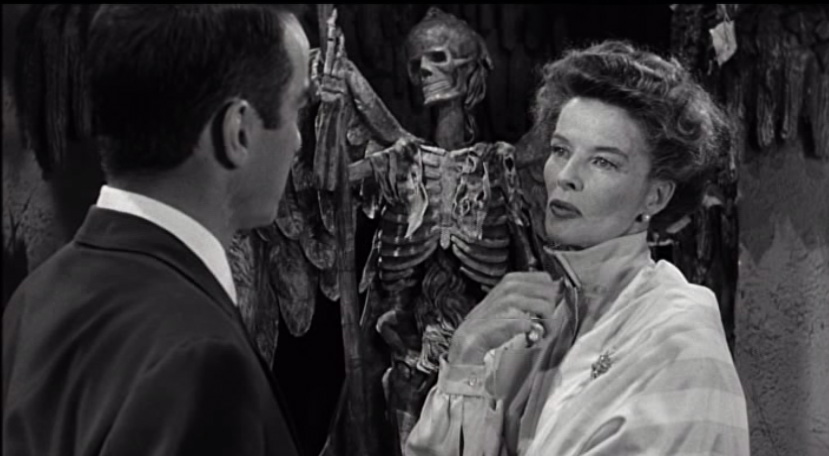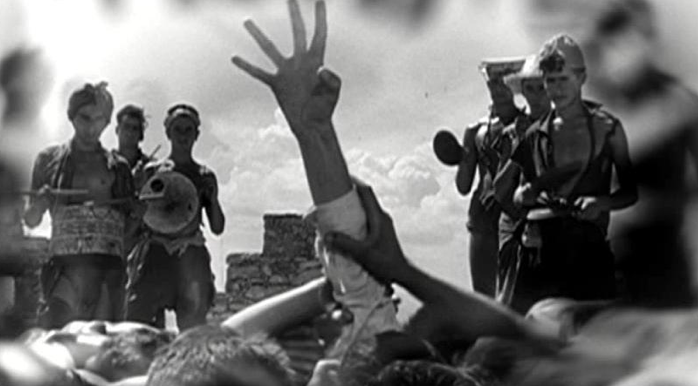It's Mutant Week!
We haven't done a "Cast This!" in awhile. The X-Men franchise may have a disproportionate amount of blue members (Angel, Beast, Mystique, Nightcrawler) at various times in their long history but the color that keeps those movie mutants going is green. Eventually they'll get to all the characters if you keep buying your tickets. Or, they won't and they'll just keep redoing the few they've concentrated on. (Those super lame cameos by every mutant who ever existed in X-Men Last Stand and X-Men Origins: Wolverine DO NOT COUNT.) Since I grew up obsessing over the X-Men, once every 3 years or so I think "I should read those comics again" only to immediately abandon the notion after one issue when I realize that the universe is too crowded. There's no continuity or internal logic I can suss out and even when people can turn their whole body into steel or projectile vomit acid while flying on butterfly wings, I like for things to make sense.
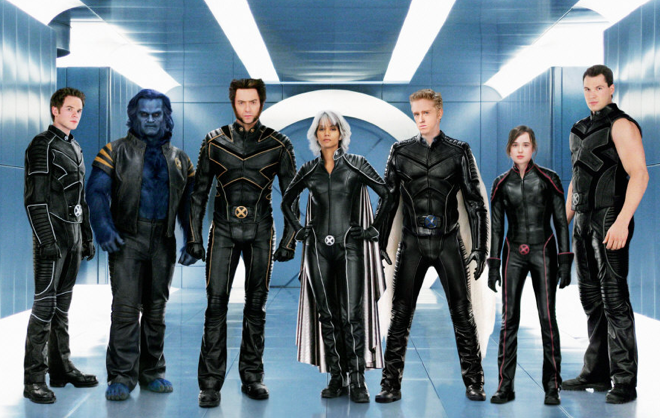 The incredibly lame "X-Men Last Stand". DO-OVER!
The incredibly lame "X-Men Last Stand". DO-OVER!
Somehow comic book mutants keep dying, quitting, depowering, getting lost in alternate dimensions, and returning to fight once more. Some characters age out of the game. Others never age at all. The actual comic books do the same, some resetting to issue #1, others ending entirely. Nothing makes any sense for the newcomers... even with a study guide indicating, perhaps, that comic book companies don't expect anybody to keep reading for decades, hence all the resetting and undoing.
Now that they've hit the reset button yet again, who should we cast to play our favorite mutants that haven't gotten a fair shake or need radical do-overs? I've selected only 5½ characters because this could go on for weeks and it'd be easy to list 20. Plus: most of us wouldn't know enough working actor options for interesting characters like "Karma", a Vietnamese lesbian who possesses people or fan favorite "Jubilee" a Chinese-American teen gymnast who generates explosions. Just for two random examples.
Your casting choices in the comments please...
FAIR SHAKE
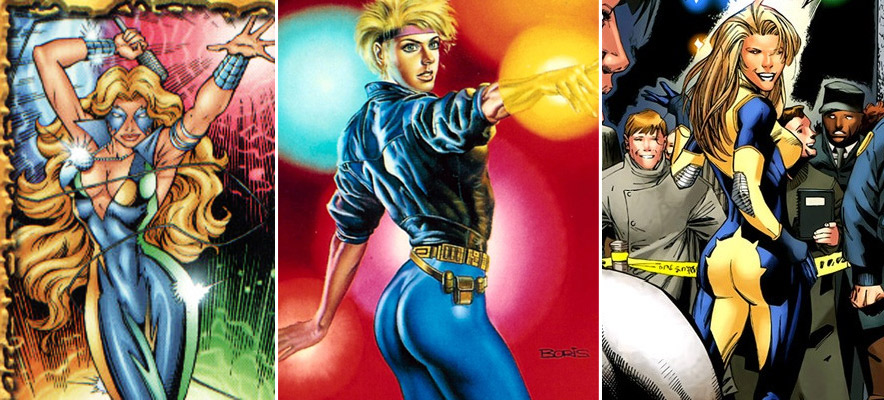
DAZZLER
They haven't used Alison Blaire, this goddess of light manipulation, presumably because she's an easy character to get wrong. But if any medium is the right one for "light shows" isn't it the movies? Attempts to update Dazzler, of disco-dolly rollerskating origin, tend to trap her in yet more period-specific pop looks. Remember that 80s aerobic blue look which screamed "Olivia Newton-John!" just as ONJ's fame was dwindling? But while the X-franchise is period mode, why not use her for X-Men Second Class (this will thankfully never be the title; the reviews would write themselves!) and wrap her back up in 70s disco?
If Dazzler's original sartorial aesthetic is good enough for Lady Gaga in this new millenium, isn't it good enough for Marvel Studios?
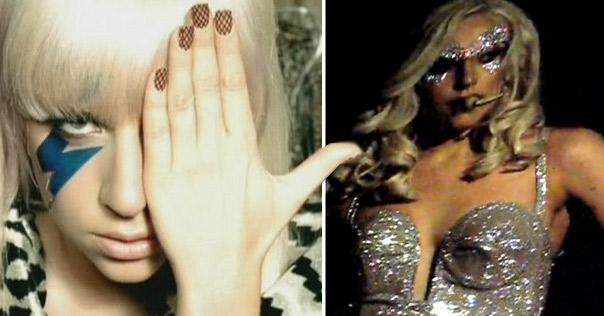 Like Dazzler, Like Gaga: blue electric bolt eye decor, sparkly silver bodices
Like Dazzler, Like Gaga: blue electric bolt eye decor, sparkly silver bodices
WHO YOU NEED: I'd be tempted to suggest Gaga, Britney, Ke$ha or XTina but STUNT CASTING only works when the stuntperson can actually act. Who would you choose? You need a 20something blonde who is shiny, sexy, easily manipulated (oops. we all have our flaws) and believable as both pop star AND mutant powered hero.
COLOSSUS
Daniel Cudmore looked the part in X2: X-Men United, but it was a bit part. But this Russian metal muscle man could look spectacular with the advances in CGI. Or not. Plus Piotr Rasputin is the only major member of the iconic X-Men team from the late 70s/early 80s that hasn't gotten a large role yet. But mostly I'm bringing Colossus up because as I was attending that Sandra Bernhard show the other night, Cheyenne Jackson was right in front of me in line filing in. After catching my breath -- he's impossibly better looking in person -- I thought "Hmmm. Colossus?" Take a look...
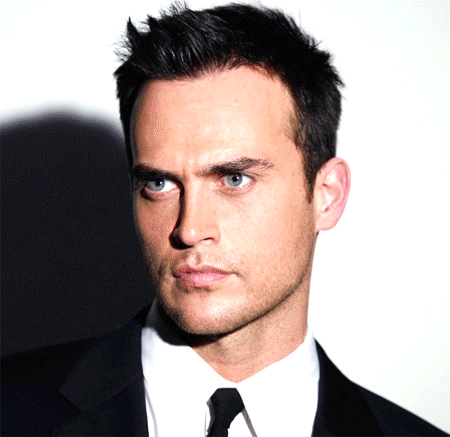
Whatch'a think?
 NORTHSTAR / AURORA
NORTHSTAR / AURORA
They were originally members of Alpha Flight (a Canadian superhero team) but Alpha Flight's ties to the X-Men are plentiful and Northstar at least has been on an X-roster from time to time. These French Canadian twins have super speed, and huge bursts of blinding light when paired. Northstar, a star athlete, was (arguably) the first out gay superhero. The twins have such a convoluted and frequently revised back story (they're fairies, now they're dead, they're...whatever...) that it's best to just chuck it all and know that they're both extremely hot, lithe, black haired babes. They've cleaned up Northstar's personality over the years (I have no idea what happened to Aurora) but he started out egotistical and a bit amoral and she started off batshit bonkers with virgin/whore split personalities and they'd be really fun in movies if they were cast and executed properly.
WHO YOU NEED: I thought it would be a fun challenge to cast temperamental unisex hotness -- boy/girl twins with elfin beauty. I'm not sure I have a good suggestion so I'm hoping you do...
DO OVER
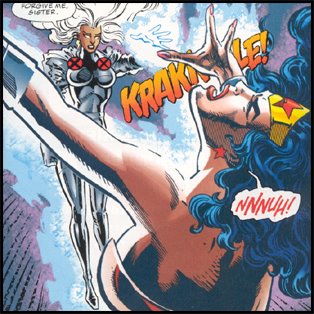 STORM
STORM
Halle Berry gave us the lamest "super" interpretation outside of... well, no, just the lamest. And she did it twice! (see also: Catwoman). Halle has her charms but few actors are suitable to all genres and she's like Kryptonite for this one.
In many ways, Storm is THE female superhero, Marvel Division, so popular and so powerful that when they did one of those crossover things with MARVEL/DC decades ago, she had to face off against Wonder Woman herself. The movies have been content to paint her as a subordinate teacher/mother hen type for students and seriously mute her powers (or at least cover them in molasses... seriously get on with it already in those action sequences!).
WHO YOU NEED: an actress of african descent, who radiates fierceness and power and physicality -- Storm is still the most popular black superhero ever created and way up their in the female hero ranks, too -- but can also be the mother figure to young students. Most fans, including myself, wanted Angela Bassett back in the day but she's aged out of the part (sigh). You'd also want someone kind of scary unpredictable. Remember when Storm went through her punk phase?
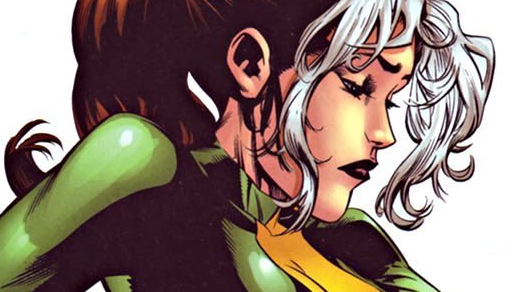 ROGUE
ROGUE
I mean this as no knock against Anna Paquin who is fine in the movies, but the movies have had a very timid perception of this character. Rogue has long been one of the most fascinating mutants because of her complex psychological struggles connected to her powers. The movies reduced this to her touch incapacitating other people by basically stealing their life force but Rogue wasn't able to do anything much with this life force. In the comics, she can readily "borrow" powers, making her fierce in battle and given that sometimes she has other people's memories and personalities knocking around her head, she's also kind of fucked up crazy as well as continually sex-starved. Or at least that's how she started out... the comics are always messin' with the story. In short: the movies haven't even begun to explore her properly.
WHO YOU NEED: A southern (or southern-accent-capable) actress with a remarkably fluid expressiveness so as to better indicate all of Rogue's internal confusions and slippery crowded persona.
Five Characters. GO!
 Friday, June 17, 2011 at 8:30PM
Friday, June 17, 2011 at 8:30PM 
